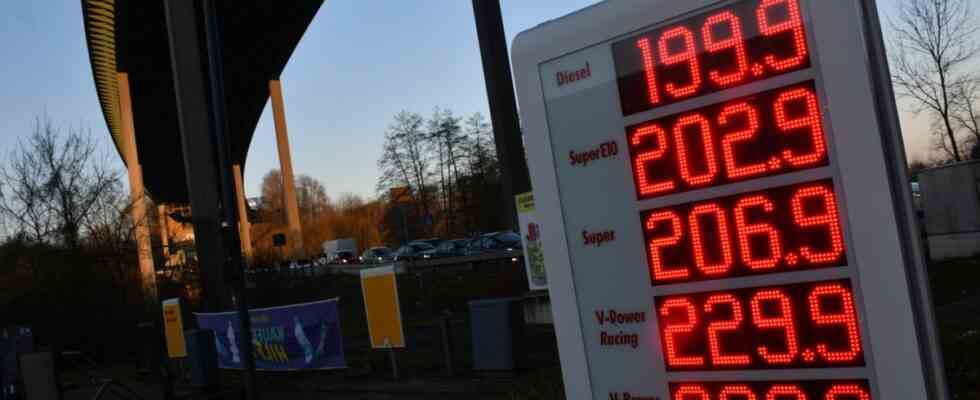In view of the rapidly increasing energy costs, the federal government is working on further relief for citizens – including a “crisis discount” for fuel. “There must be a next relief package,” said Federal Finance Minister Christian Lindner (FDP) on Monday. The state should not leave the citizens and the economy alone with rising prices. “We have to find relief quickly and noticeably.” A state-financed discount on the price of gas is conceivable. Every driver could be granted a discount on the invoice amount when paying at the petrol station. According to ADAC, a liter of premium petrol recently cost an average of 2.20 euros, and a liter of diesel even 2.30 euros.
The war in Ukraine and discussions about a possible embargo on Russian oil have recently pushed up the oil price. In the meantime, several European countries, including France and the Netherlands, have announced a reduction in fuel prices. Sweden also followed suit on Monday, where the fuel tax is to be reduced between July and October.
For Germany, Lindner promised a “low-bureaucracy” solution. It is not intended “that every single fuel receipt is billed to the state”. Instead, the state should act at the level of gas station operators and oil companies, “on the basis of the total quantity”. The FDP chairman was still reluctant to give details; it is initially only a matter of his proposal, not yet one that has been agreed within the government. Lindner pointed out that there are already tank discounts. In fact, such offers exist, for example for the holders of certain credit cards or for car club members. The state “crisis discount” is apparently supposed to work in a similar way to such bonus programs.
According to Lindner, a discount of ten cents for a month would cost the state 550 million euros. However, he did not want to commit to a relief volume. “It will have to be more than ten cents and more than a month if I have my way.” The Union, on the other hand, has called for a reduction in VAT on fuel. Lindner, however, rejected this.
But economists are critical of the discount idea. “I don’t think much of that,” said Clemens Fuest, head of the Munich Ifo Institute Süddeutsche Zeitung. “Aid should only be granted where the burden is unsustainable, i.e. for low-income households or very energy-intensive companies.” Ultimately, future taxpayers would bear the burden of this relief – because the state would have to go into debt for it. Jens Boysen-Hogrefe, tax expert at the Kiel Institute for the World Economy, put the additional costs for the state at at least ten billion euros a year.
Lindner also encounters reservations with the green coalition partner. “A planned economy and subsidizing the price of petrol is not really a well thought-out idea,” said Green budget expert Sven-Christian Kindler. “That doesn’t work as an answer to the fossil price increases caused by Putin’s war.” The environmental organization Greenpeace warned that the discount would distort price signals.
In addition to the tank discount, which has a “wide effect”, Lindner also brought relief in heating oil costs into play on Monday. With a view to social balance, it is also conceivable to “reexamine” the one-off payment of 100 euros that has already been decided for recipients of basic security.
However, this second relief package has not yet been priced into the previous budget plan, as Lindner also conceded. Therefore, a “supplementary budget” will be presented to the Bundestag in the next few weeks. This will reflect “the changed overall economic and political situation” as well as “possible consequences of humanitarian aid for refugees” and the further relief in energy prices.
The key points for the actual 2022 budget are to be adopted by the cabinet this Wednesday. New borrowing of 99.7 billion euros is planned so far. However, it is likely to increase again as a result of the “supplementary budget”. The relief package could possibly even be in place by Wednesday. SPD General Secretary Kevin Kühnert said he saw great unity in the coalition on the issue. Decisions could already be made on the fringes of the cabinet meeting. It was not until the end of February that the coalition committee introduced the first relief – including surcharges for children, a one-time payment for Hartz IV recipients and the elimination of the green electricity levy. A day later the war began.

